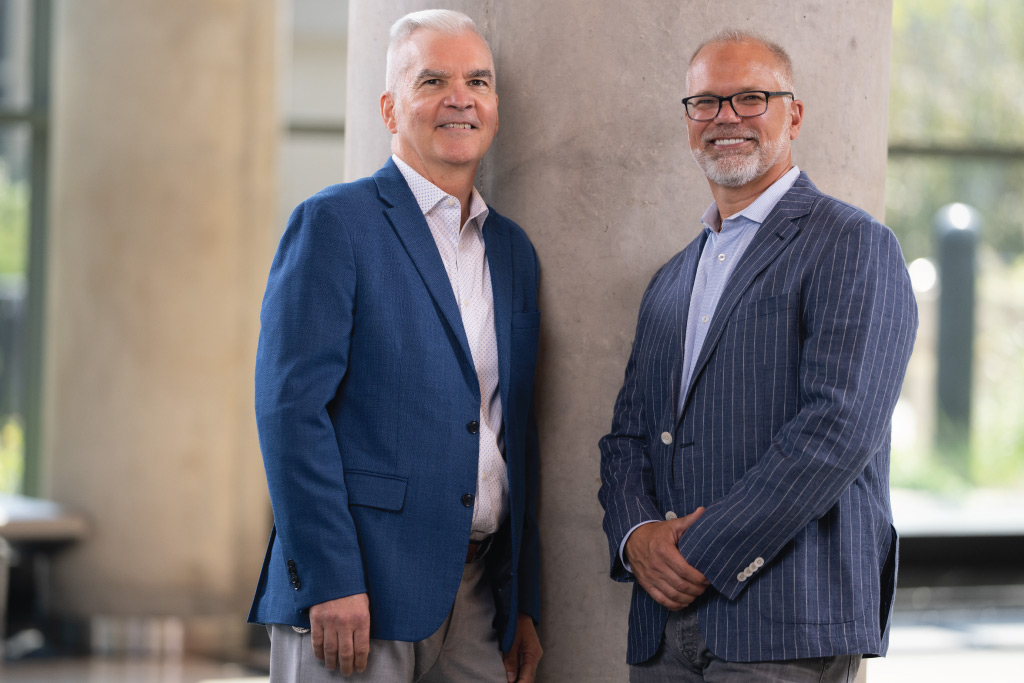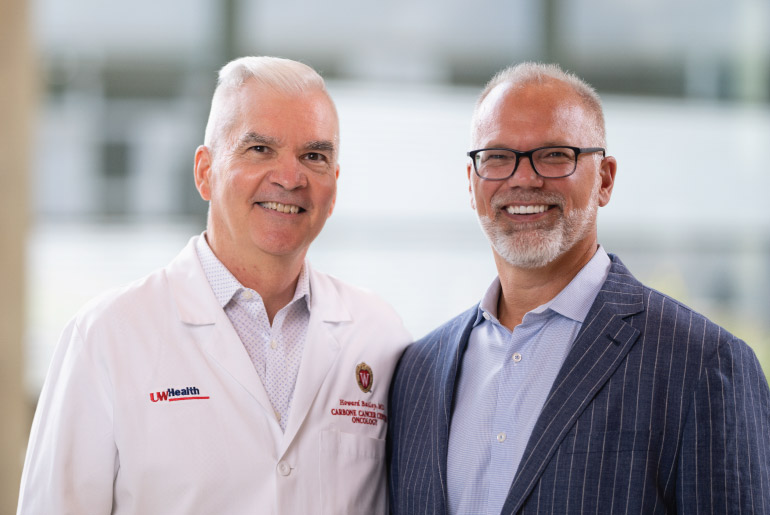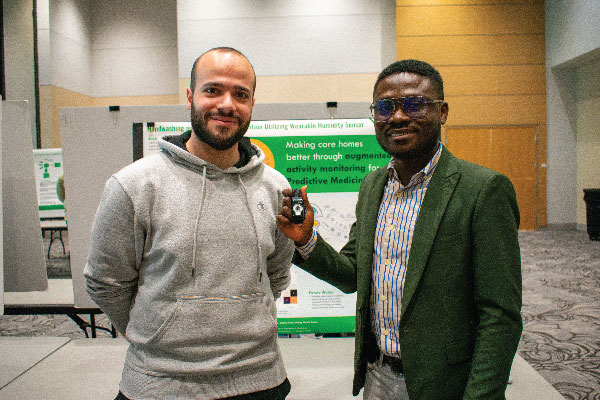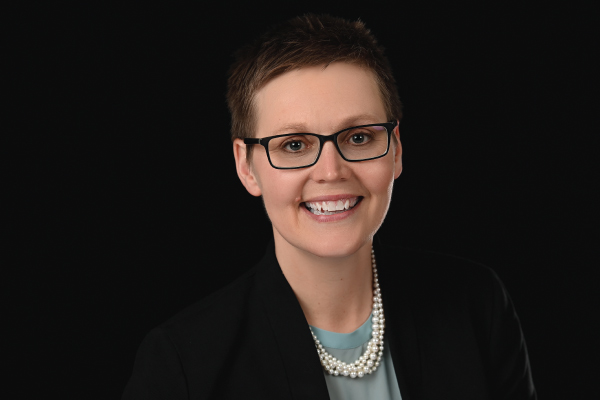A Powerful Partnership
UND grads accelerate cancer research and treatment.
Cancer research is advancing at a pace like never before, and two UND alumni are leading the charge.
Howard Bailey, ’81, ’83, ’85, and Erik Iverson, ’94, created the UW Carbone Cancer Center Innovation Fund and Venture Philanthropy Program, which provides seed funding to support cancer research, faculty recruitment, and product development. The initiative’s goal is to advance new approaches to cancer diagnosis, treatment, and prevention. Donors to the program may receive co-investment opportunities in related biotech startups.
“We asked ourselves, ‘How can we connect and motivate donors to support this entire process?’” said Erik, CEO of the Wisconsin Alumni Research Foundation (WARF). WARF, an independent nonprofit that serves as UW-Madison’s technology transfer organization, supports university research by funding, obtaining patents, and licensing inventions to industry.
Erik joined WARF in 2016 after working at the Bill & Melinda Gates Foundation and the Infectious Disease Research Institute in Seattle. His background complements Howard’s 35-year medical career with the University of Wisconsin Carbone Cancer Center (UWCCC), where he serves as director. The UWCCC, one of the first National Cancer Institute-designated centers, receives $100 million in cancer research funding and treats 50,000 patients every year.
“The concept evolved naturally as we recognized a linear path from philanthropic donations to funding cancer research, securing patent protection, and eventually launching startups,” said Erik.

Howard Bailey, ’81, ’83, ’85, and Erik Iverson, ’94, created the UW Carbone Cancer Center Innovation Fund and Venture Philanthropy Program.
A Unique Opportunity
The UWCCC Innovation Fund and Venture Philanthropy Program is a “pay-to-play game of fine philanthropy” that starts with the University of Wisconsin’s successful and expanding venture portfolio, Erik said. Donors fund early researchers at Carbone and receive updates on drug development. They can track those ideas into the marketplace and then invest in startup companies. They’re expected to give 20% back to the university if they realize a financial return.
The structure allows early-stage researchers at Carbone to quickly develop and commercialize breakthrough treatments. “When a researcher discovers a promising new target, we start working with WARF and venture philanthropists even before the drug is patented,” Howard said. “This approach gives us the ability to cast a much wider net to explore the possibilities.”
Howard said several promising ideas are already in the pipeline. They could enter clinical trials within the next year or two — far quicker than the typical seven-to-eight-year timeline. “It’s still not fast enough,” he said, emphasizing the urgency to bring new treatments to patients.
“Whether it’s a new drug, a new antibody, or a new imaging technique, we’ve done that,” he said. “But it isn’t just about basic research, it’s about how we can quickly translate that research into real benefits for people.”
It was a cutting-edge, high-impact decision made by two UND graduates that will have a big impact on cancer treatment. That’s what UND produces.Erik Iverson, '94
Creatively Leveraging Resources
The possibilities offered by the venture philanthropy model energize both men.
“We align the research incentives with the commercialization incentives, and because we’re all part of the ecosystem of the UW-Madison, we’re partners. Few places in the country can actually build this as one cohesive unit,” Erik said. “We have both big research and a captive venture fund spinning these companies out.”
Howard added, “It’s extra rewarding because of working with Erik. Both of us have semi-highfalutin positions at this big university, and we’re trying to do things that are somewhat unique across the country.”
The North Dakota Connection
Though Howard and Erik share an alma mater, they didn’t meet until their work brought them together. “We’re two UND brothers who graduated literally across the street from each other — one in med school and one in law school. One leads one of the country’s most comprehensive cancer centers, the other leads the world’s first and largest tech transfer office,” Erik said.
Howard added, “I’ve always differentiated myself by being the guy from North Dakota, telling stories about growing up in a small town.”
After 35 years at UWCCC, he plans to retire within the year. “I’ve loved what I’ve done – not that anybody would love dealing with cancer, but it’s been such life-affirming work; the patients, the families, the people are so impressive and wonderful. Even in the middle of suffering, my patients would say, ‘What are you going to do? You can’t work all the time.’ They were worried about what I was going to do and how happy I was going to be.”
While his retirement will mark the end of the day-to-day working partnership between the two North Dakotans, they’re excited to tell their story. “It took both Howard and me to creatively leverage all the resources available to us,” Erik said. “It was a cutting-edge, high-impact decision made by two UND graduates that will have a big impact on cancer treatment. That’s what UND produces.”



